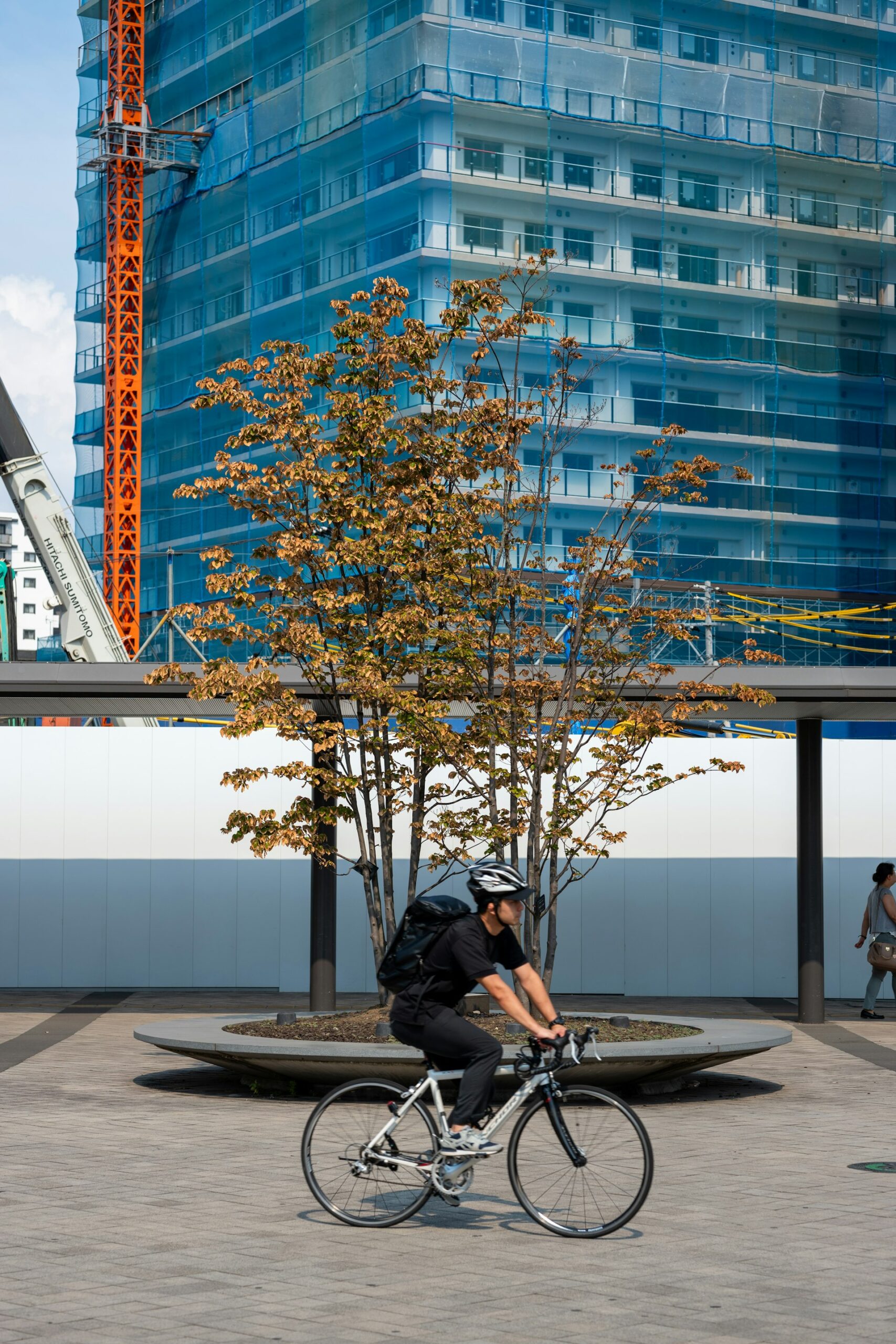Unlocking Flexible Living: The Rise of Digital Nomad Housing Solutions

Photo by Levi Meir Clancy on Unsplash
Introduction: The Digital Nomad Revolution and Housing
The digital nomad lifestyle-working remotely while traveling the globe-is transforming how people live and work. As the number of digital nomads grows, so does the demand for flexible, reliable, and community-driven housing solutions. New platforms and services are emerging to meet these needs, offering a range of accommodations and support systems that empower remote workers to thrive from anywhere. This article explores the evolution of digital nomad housing, outlines actionable steps to access these solutions, and highlights the latest global trends in affordable living, community, and legal requirements.
Understanding the Needs of Digital Nomads
Digital nomads prioritize flexibility , reliable internet , and community . Moving frequently between countries or cities, they seek accommodations that cater to both productivity and lifestyle. Essential amenities include high-speed internet, dedicated workspaces, and opportunities for socializing or networking with like-minded individuals. Many also look for safety, pet-friendly policies, and the ability to book on a monthly basis without long-term commitments [2] .
Leading Digital Nomad Housing Platforms
A range of platforms now specialize in connecting digital nomads with housing that fits their unique requirements. Each offers distinct advantages, from flexible contracts to community integration and amenities:
Homelike
Homelike facilitates flexible, mid- to long-term rentals in cities across Europe and beyond. Designed for remote workers, their properties feature fast internet, furnished apartments, pet-friendly options, and a straightforward one-click, deposit-free booking process. This suits nomads seeking stability for a month or more without cumbersome contracts. To access Homelike’s offerings, visit their official website and search for properties in your preferred city. Booking is immediate, and customer support is available to assist with any issues [2] .
VRBO
VRBO (Vacation Rental By Owner) has emerged as a top competitor to Airbnb, especially for those seeking entire homes or unique rentals. The platform’s search filters allow users to specify work-friendly amenities such as high-speed Wi-Fi and dedicated workspaces. While VRBO tends to focus on full apartments or houses, it is well-suited for longer stays and often offers discounts for weekly or monthly bookings. To find suitable rentals, use VRBO’s search tools and filter for amenities critical to remote work [2] .
GoGoplaces
GoGoplaces offers a unique approach by securing several properties within close proximity, creating neighborhoods tailored for digital nomads. This fosters a sense of community, enabling remote workers to engage with others while enjoying flexibility in choosing a location that matches their lifestyle. For more information on GoGoplaces, search for their platform and review neighborhoods that align with your preferences [1] .
Behere
Behere focuses on providing safe, flexible monthly rentals specifically for women digital nomads. Their offerings include access to co-working spaces, fitness studios, and a supportive network. The platform emphasizes safety and community, making it a preferred choice for women seeking a secure environment in new cities. To use Behere, visit their official portal to browse available locations and sign up for month-to-month stays [1] .
Other Options
Additional platforms such as MyKey, Flatio, and NomadPass provide further housing diversity, from furnished apartments to co-living spaces. MyKey, for example, offers temporary housing including hotels, homes, and RVs, catering to a broad range of budgets and preferences. To explore options, consult each platform’s website and use their search filters for digital nomad-friendly features [5] .
Global Trends: Affordable Cities and Digital Nomad Visas
Several cities worldwide have adapted to attract digital nomads by offering affordable living, robust infrastructure, and streamlined legal requirements:
Affordable Destinations
Popular cities for digital nomads in 2025 include Chiang Mai (Thailand), MedellÃn (Colombia), Mexico City (Mexico), Budapest (Hungary), and Lisbon (Portugal). Monthly rental costs in these cities range from $230 to $2,000, depending on location and type of accommodation. These destinations feature fast internet, active nomad communities, and vibrant cultural scenes. For example, Chiang Mai is known for its low rent and strong digital infrastructure, while Tbilisi (Georgia) offers visa-free stays for up to a year for many nationalities [3] [4] .

Photo by Umid Akbarov on Unsplash
Digital Nomad Visas
Many countries now offer digital nomad visas, allowing remote workers to legally reside and work from abroad for extended periods. For example, South Korea’s digital nomad visa permits stays up to two years, while Georgia allows up to 365 days visa-free for citizens of 95 countries. To determine eligibility and application steps, research the official immigration websites of your destination country and search for “digital nomad visa” or “remote work visa” programs. Requirements may include proof of income, health insurance, and a valid remote work contract [4] .
Community, Amenities, and Safety
Community is a key factor for digital nomads, with many choosing housing solutions that foster networking and social engagement. Platforms like GoGoplaces and Behere offer built-in community support, while cities with large nomad populations regularly host meetups and events. When selecting accommodations, look for amenities such as coworking spaces, communal lounges, and fitness centers. Safety is also paramount; platforms catering specifically to women or offering verified properties can provide additional peace of mind [1] [5] .
Step-by-Step Guide to Securing Digital Nomad Housing
- Assess Your Needs: Determine your preferred location, budget, required amenities (e.g., high-speed Wi-Fi, desk), and desired community involvement.
- Research Platforms: Visit the official websites of platforms like Homelike, VRBO, GoGoplaces, Behere, MyKey, and others. Use filters to narrow down properties that match your criteria.
- Review Listings Carefully: Read property descriptions, check for verified reviews, and confirm the availability of essential amenities before booking.
- Understand Visa Requirements: Before committing to a destination, research the country’s remote work visa policies by visiting the official immigration or government website. Look for “digital nomad visa” or similar programs and review eligibility criteria.
- Book and Prepare: Once you’ve selected a property, complete the booking process through the platform. Ensure you have documentation such as proof of income, travel insurance, and any visa paperwork required by your destination.
- Engage with the Community: Upon arrival, seek out local digital nomad groups on social media or through coworking spaces. Participating in events can help you build a support network and enhance your experience.
Alternative Approaches and Challenges
While specialized platforms streamline the housing process, some nomads still use general marketplaces like Airbnb or Booking.com. However, these may require more diligent vetting for work-friendly amenities and reliable internet. In some emerging destinations, language barriers or limited inventory can pose challenges. Solutions include reaching out directly to property owners for clarification, joining local Facebook groups for housing leads, or considering coliving spaces that cater to the remote work community.
Be aware that prices, amenities, and visa policies can change. Always double-check information on official platforms and remain flexible with your plans. If platforms are unavailable in your target location, local real estate agencies or community boards may offer alternatives, though these may require more legwork and verification.
Summary: Key Takeaways for Digital Nomads
The rise of digital nomad housing solutions is making it easier than ever to live, work, and travel worldwide. Whether through specialized rental platforms, affordable global cities, or supportive communities, digital nomads can access flexible, secure, and productive living arrangements. To get started, define your needs, research verified platforms, ensure compliance with visa requirements, and immerse yourself in the local community for the best possible experience.
References
- [1] Freaking Nomads (2024). Housing Options for Digital Nomads: The Best Rental Sites.
- [2] Viva Nomadia (2025). 13 Top Rental Sites for Digital Nomads.
- [3] Coliving.com (2025). Most Affordable Cities for Digital Nomads.
- [4] Nomads Embassy (2025). Digital Nomad Destinations in 2025.
- [5] MyKey (2024). Exploring Temporary Housing Options: A Digital Nomad’s Best Choices.



